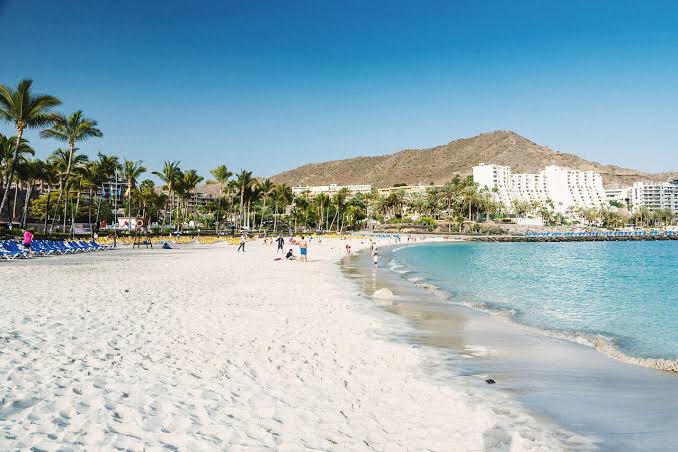Gran Canaria Authorities Release Statement on Growing Tourism Impact and Sustainability Measures
Las Palmas de Gran Canaria, May 23, 2025 —
In response to increasing concerns about the environmental and social impacts of tourism, the Gran Canaria Island Council today released a comprehensive statement outlining a new strategy to balance economic growth with sustainable practices. The announcement comes amid a significant rise in tourist numbers during the first quarter of 2025 and growing pressure from both local communities and environmental groups.
A New Vision for Tourism
The statement, issued jointly by the Department of Tourism and the Department of Environment, signals a shift in the island’s approach to managing its booming tourism sector. Gran Canaria, the second most populated island in the Canary Islands and a popular destination for European travelers, welcomed over 1.2 million visitors in the first three months of this year alone—a 17% increase compared to the same period in 2024.
“This island has long thrived on its natural beauty and vibrant culture. However, we must now face the reality that growth cannot come at the expense of our environment or community well-being,” the statement read. “We are committed to ensuring that Gran Canaria remains a sustainable, welcoming, and resilient destination for generations to come.”
Key Initiatives Unveiled
Among the key initiatives outlined in the statement are:
- Cap on Tourist Accommodations:
The Island Council plans to introduce a temporary freeze on permits for new tourist accommodations, including hotels and short-term rentals, until a full impact assessment is completed. This move aims to curb unchecked development and ensure infrastructure can handle current demand. - Sustainable Tourism Certification:
A new voluntary “Eco Gran Canaria” certification will be introduced for businesses that meet strict sustainability criteria. The program, launching in Q3 of 2025, will evaluate factors such as energy usage, water conservation, waste management, and community involvement. - Investment in Public Transport:
To reduce carbon emissions and traffic congestion, the island will invest €35 million in upgrading its public transportation network. This includes expanding electric bus services and introducing a digital ticketing system with real-time updates for tourists and locals alike. - Protecting Natural Parks and Beaches:
The statement also announced increased funding for the protection of the island’s natural parks, beaches, and biodiversity reserves. Some sensitive areas, such as the dunes of Maspalomas and parts of the Tamadaba Natural Park, may see new visitor caps during peak seasons.
Local Voices and Reactions
The measures were met with mixed reactions. Environmental advocacy group Salvemos Gran Canaria praised the new strategy as “a much-needed correction” to years of tourism-driven development.
“This is a positive step toward real sustainability. The island’s ecosystems are under constant pressure, and we’ve seen the effects in rising waste levels, damaged habitats, and overcrowded trails,” said María Suárez, spokesperson for the group. “We welcome the cap on new accommodations and hope enforcement is robust.”
However, some business owners, especially in the hospitality and real estate sectors, expressed concern about the economic impact of the freeze on development.
“We support sustainability, of course,” said Javier Morales, director of a mid-sized hotel chain. “But we also need clarity and consistency from the government. Sudden restrictions can harm investments that were made in good faith.”
Tourists interviewed at Las Palmas airport were generally supportive. “I think it’s great that they’re protecting the island,” said Ella Johnson, a visitor from the UK. “That’s part of the reason I come here—because it’s beautiful and not totally overrun like some places.”
A Broader Canary Islands Perspective
Gran Canaria’s announcement is part of a growing regional trend in the Canary Islands. Tenerife and Lanzarote have also begun to reevaluate their tourism models, with Lanzarote last year declaring itself a “destination saturated with tourism” and beginning its own sustainable tourism framework.
The regional government has urged all seven islands to work collaboratively on a shared vision for the archipelago’s future.
“In the end, the goal is simple: preserve what makes the Canary Islands special while still benefiting from the economic boost tourism provides,” said Alejandro Pérez, the regional Minister for Sustainable Development.
Looking Ahead
Gran Canaria’s authorities say they will begin a three-month public consultation period starting in June, allowing residents, business owners, and tourism professionals to weigh in on the proposed measures.
“We believe in collaborative governance,” the statement concluded. “This is not a plan to restrict tourism—it’s a plan to reshape it, so it works for everyone.”
The next formal update on the strategy is expected in September 2025, following the conclusion of the consultation period.
